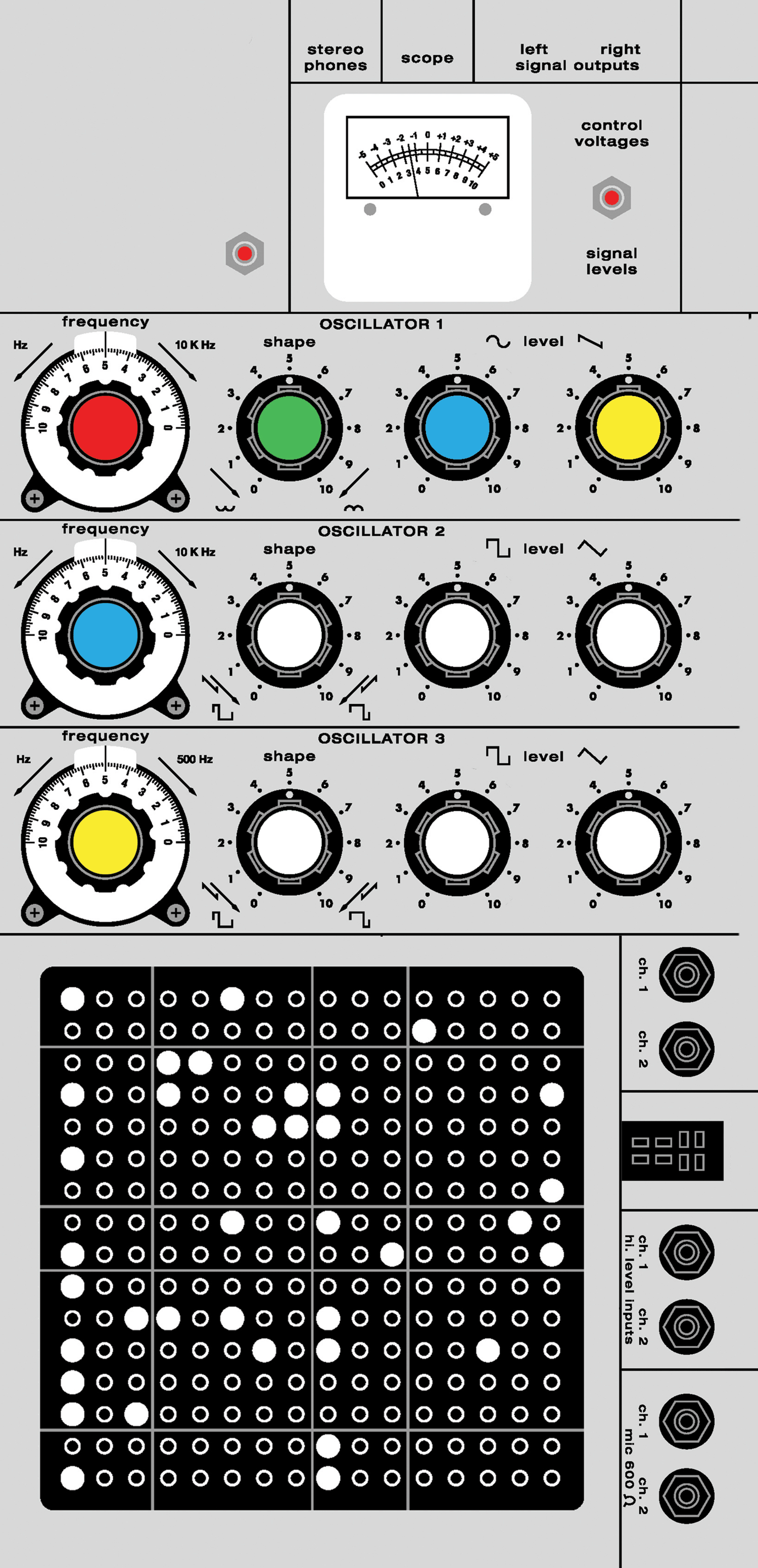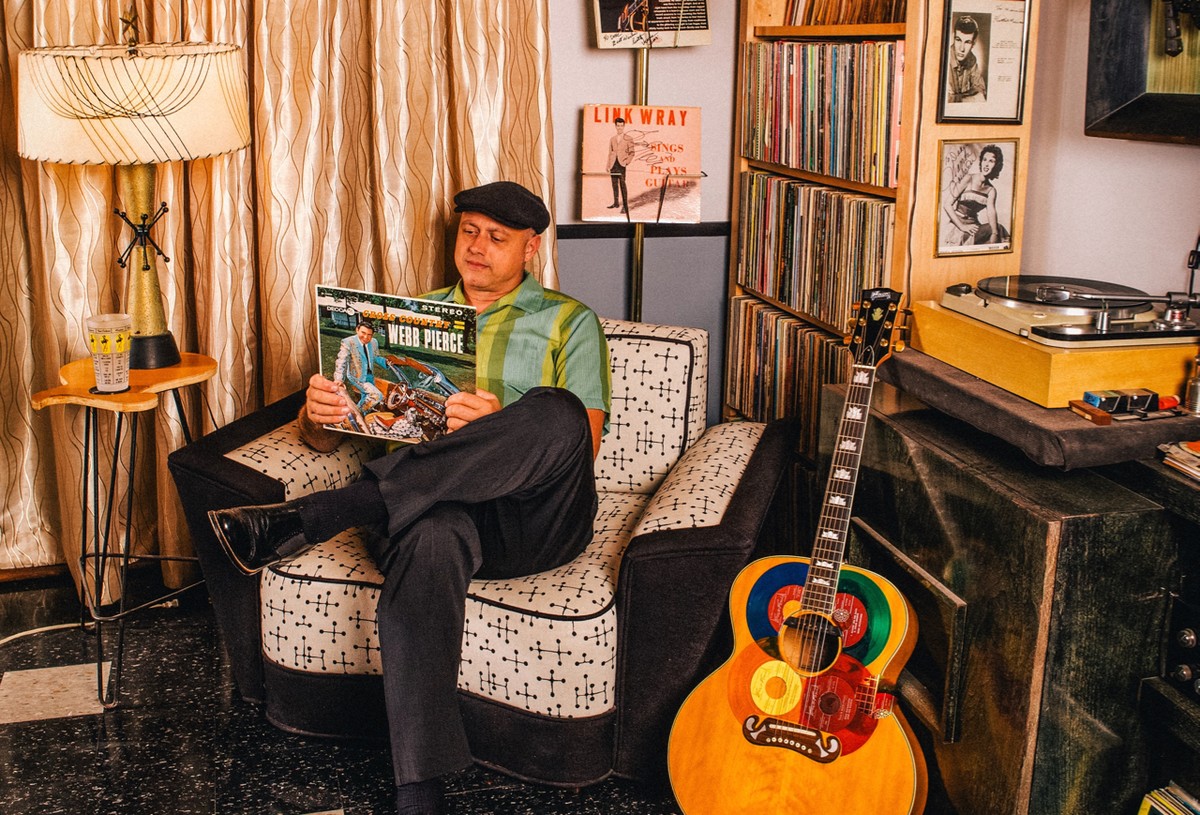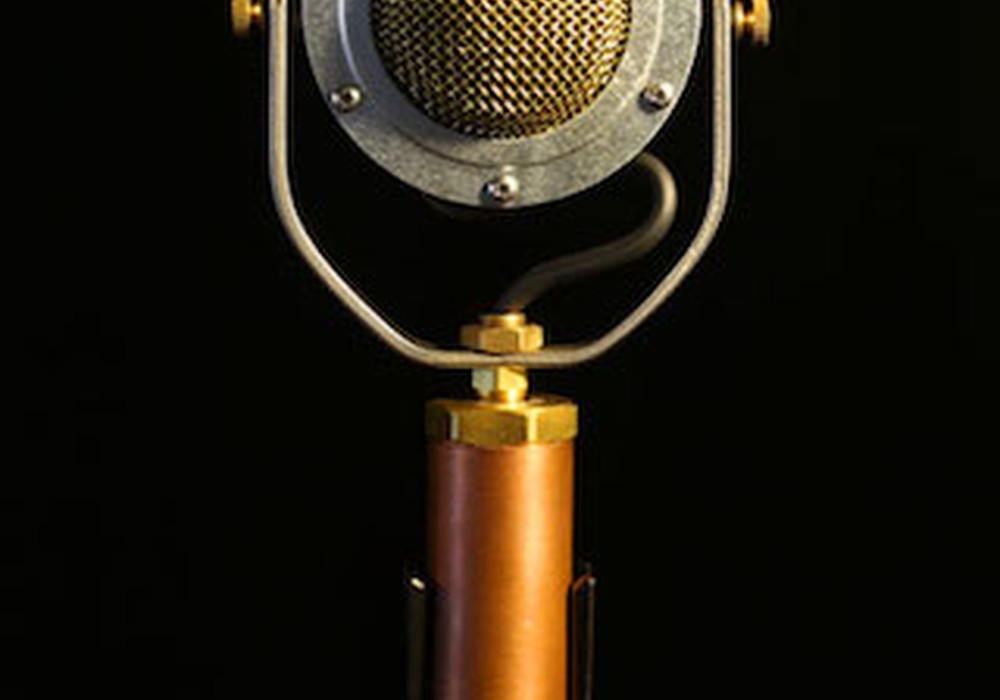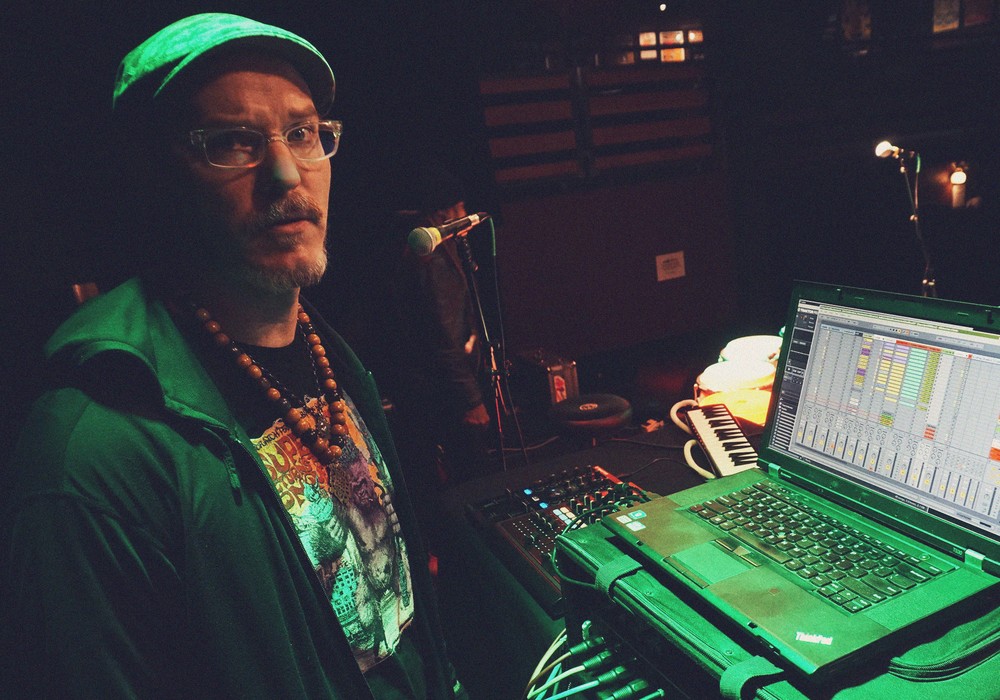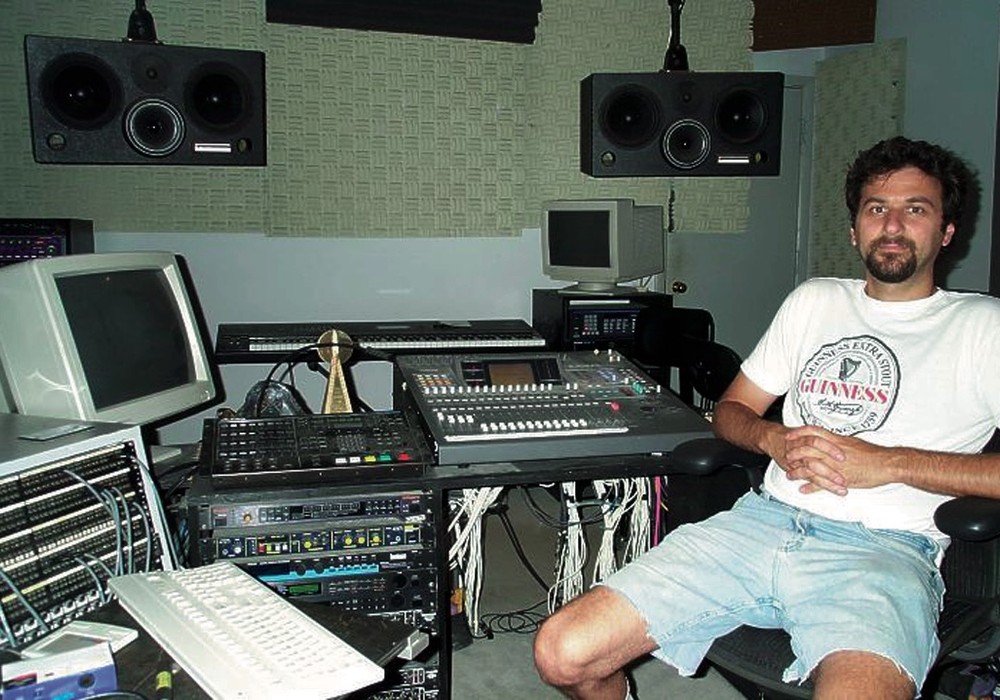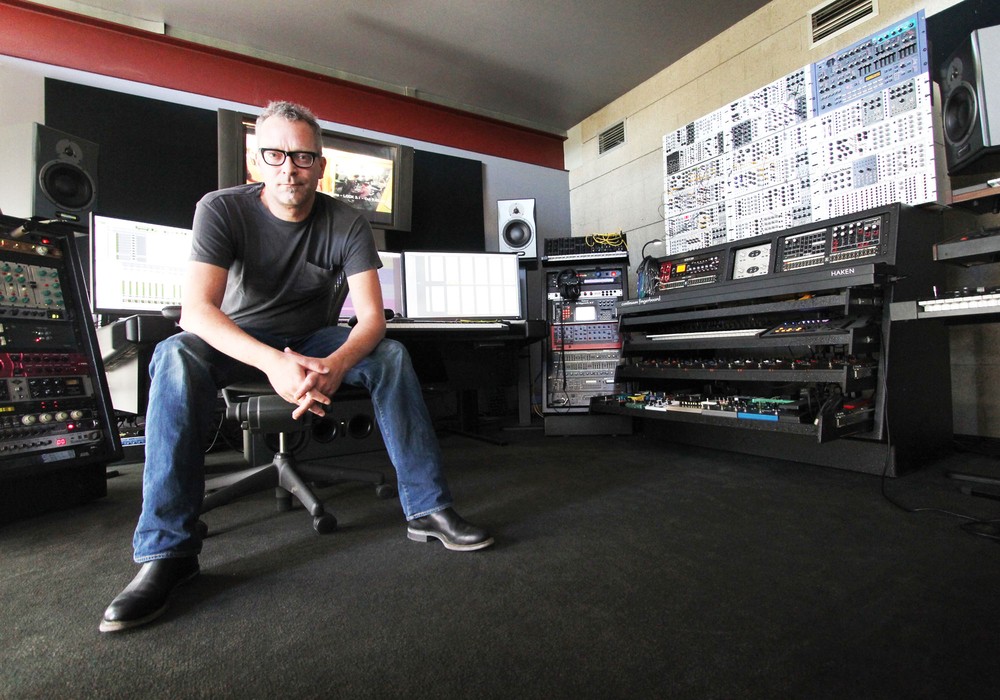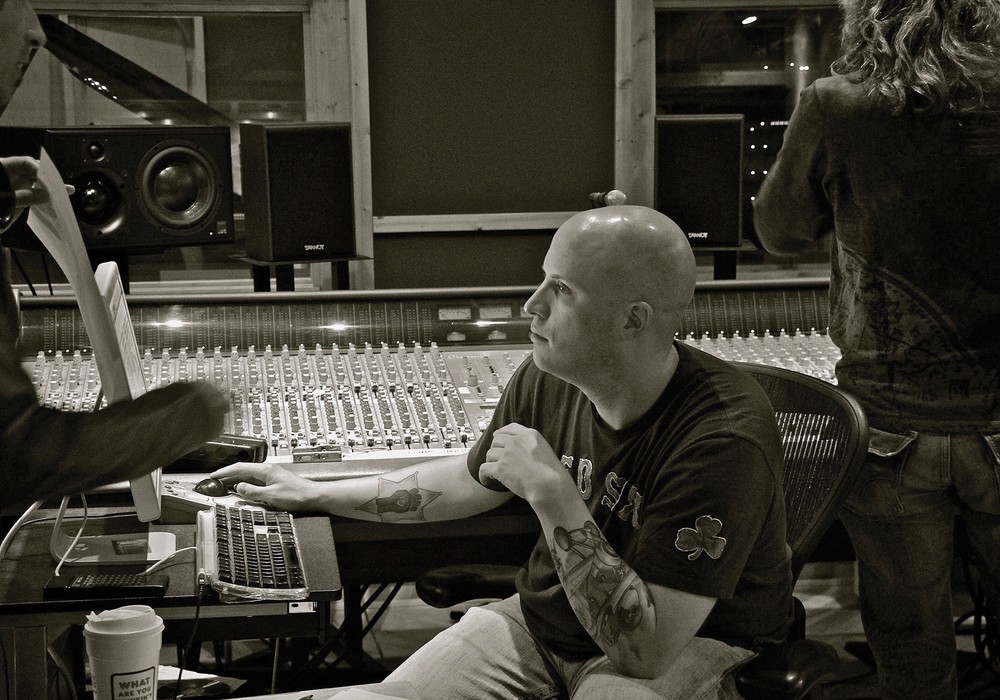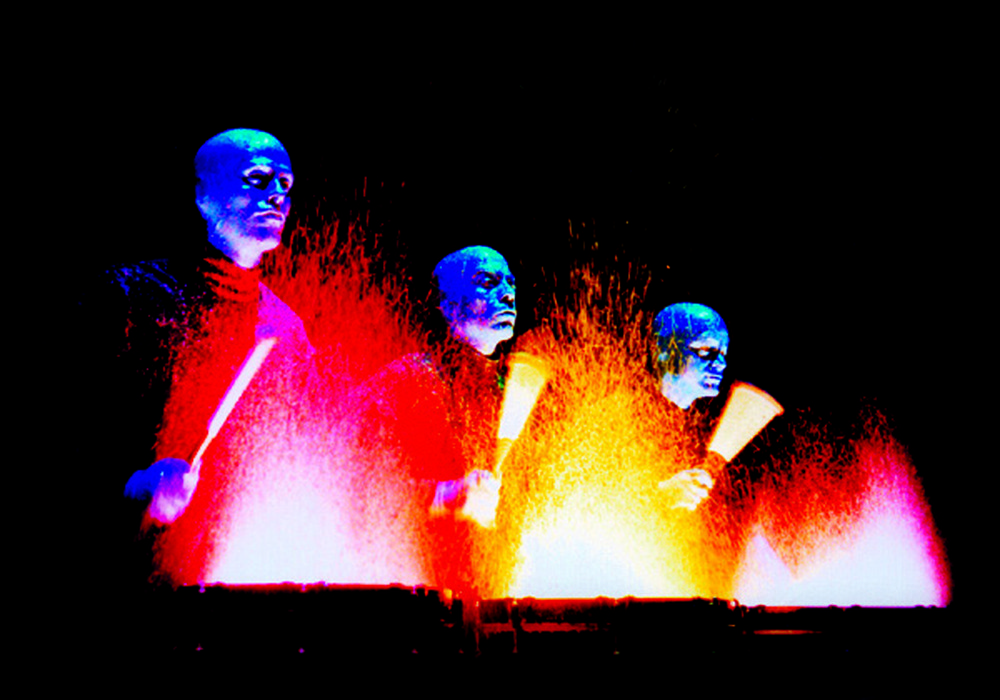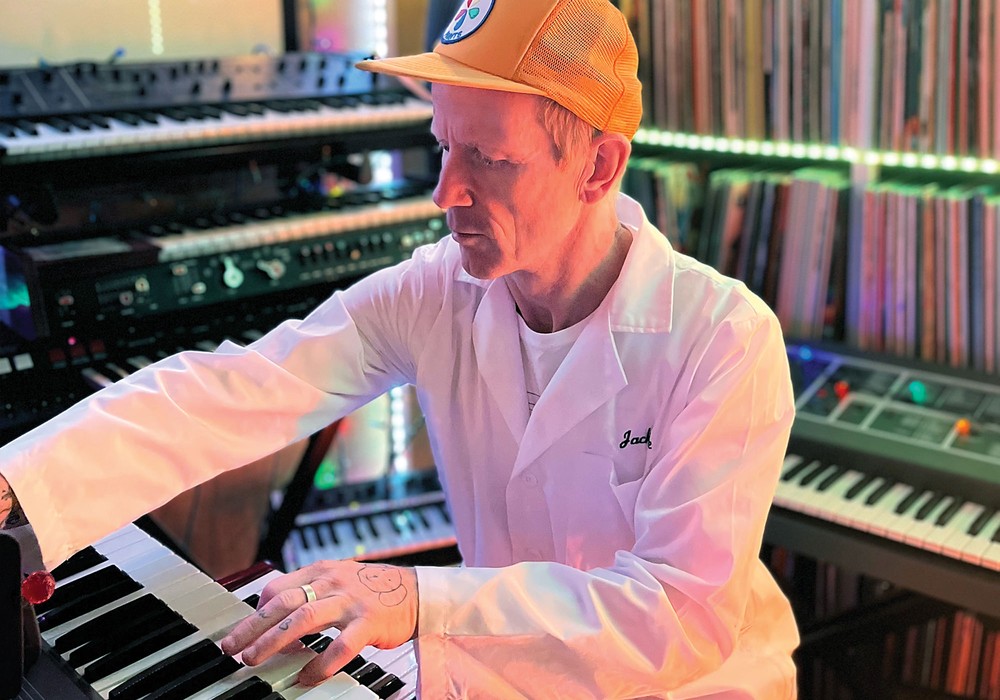A collector of guitars. Owner of Major Label and Ecco-Fonic Records. Record producer and engineer at his Ecco-Fonic Studios. Band leader. Guitarist. Author of two volumes of The Strat in the Attic. This guy, Deke Dickerson, does a lot of things. We met up for breakfast on a rainy Portland morning and, at the end of our interview, what did we do but to head downtown to look for the plaque (at 411 SW 13th Avenue) where The Kingsmen recorded "Louie Louie!" How appropriate.
Thanks for meeting up to do this interview.
I have to say, I, in no way, consider myself to be an engineer, producer, or a full-time recording studio guy, like many of the people you talk to, so I sort of don't feel like I'm qualified to be in your magazine. I'm obsessed with records, old and new, and to me there's a fascinating process of listening to those records and thinking about how they made them. I feel really proud of being able to come up with some really cool sounds of the past and present in my recordings, as well as in some of the other things I've produced.
I think that makes you someone worth putting in Tape Op! How does work come to you? I'd imagine that people come and search you out?
Yeah, [that's what happens] whenever I get hired to out-and-out record or produce somebody. But it seems like a lot of these sessions are things that I come up with in my head, like, "The Trashmen must make another record!" Then I realize that nobody's going to support that, unless it's me. So I do everything out of my pocket, just to make it happen. I did a record with Nokie Edwards from The Ventures. That one turned out really cool.
To some, these people are bygones, but they're stylistic icons to us.
That's the thing. It always pisses me off when you talk to 20-year-old know-it-alls, and they talk about guys in their sixties, seventies, or eighties as being all washed-up has-beens. Nokie Edwards has magic in his hands. He will come up with licks that you never could have come up with.
How did recording music enter your life?
I never really set out to record. I was in a band, and we did the whole thing where we saved up a bunch of money and went to a local recording studio. But after, we were like, "Man, this sounds like crap! We just spent a bunch of money, this guy seemed like he knew what he was doing, but it sounds like a Steely Dan record or something."
Was that with Untamed Youth back in Missouri?
Exactly. It all boils down to the fact that you have to have somebody on the same wavelength. The guys in Missouri were all competent engineers; but they were hippie guys, and they recorded blues and hard rock. So when I moved out to California, I discovered this whole new world of people, like Wally Hersom, Tim Maag, and Mark Neill, who I wound up recording several records with. It was like this blanket had been lifted, and I could actually make records that would sound good — or, should I say, what my personal taste thinks is good. I thought that was something that had literally vanished forever. You start realizing that it's really an approach to recording, and by using certain pieces of gear, that you can achieve those sounds. Right around the time that eBay started was when I started picking up pieces of gear, because I found them for cheap.
You'd always been involved in finding guitars, instruments, and amps, like you talk about in your book.
I was always a junk hound, so I figured that I should really focus my energy on picking up recording gear when it was cheap. I just had this feeling that it was all going to go sky high, which it did. I was lucky enough to pick things up, like an RCA 77[-DX ribbon mic] and a Sony C-37A [mic] at a flea market for a couple hundred bucks each. I started watching the local Recycler [classified] paper, which was one of the things that predated Craigslist. I picked up a couple of Ampex tape recorders, a couple Altec mixers, and some other basic items to start with. That's when you have the harsh realization that this is not plug-and-play. It starts you down this whole path, where you realize you have to learn about +4 and -10, balanced and unbalanced. And if you're using tube gear, you find out what a world of difference things like quality capacitors, resistors, and...
